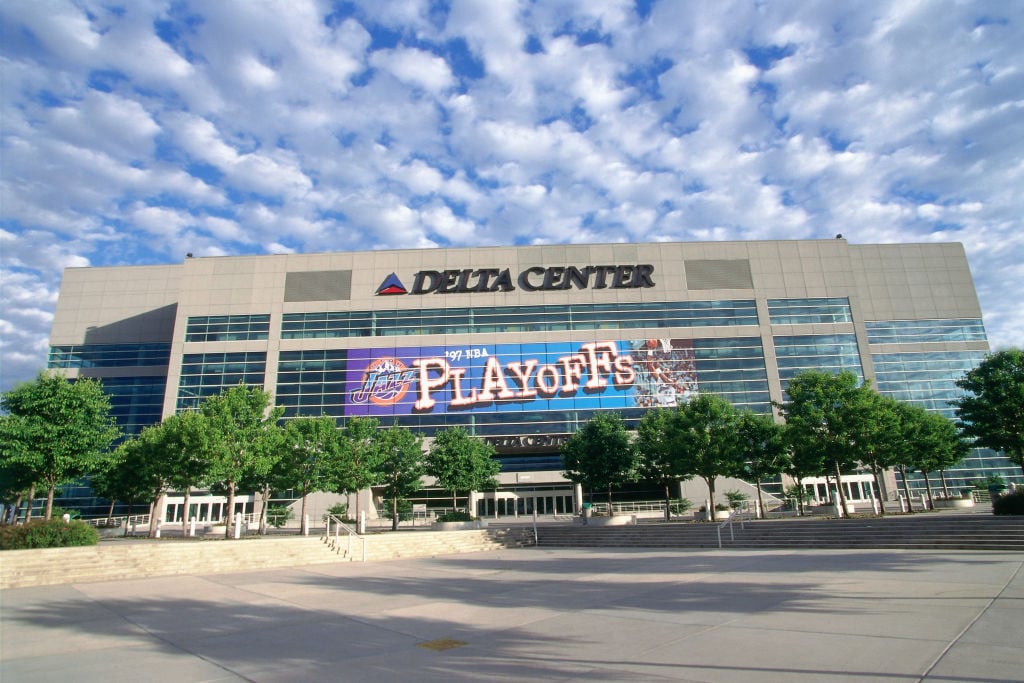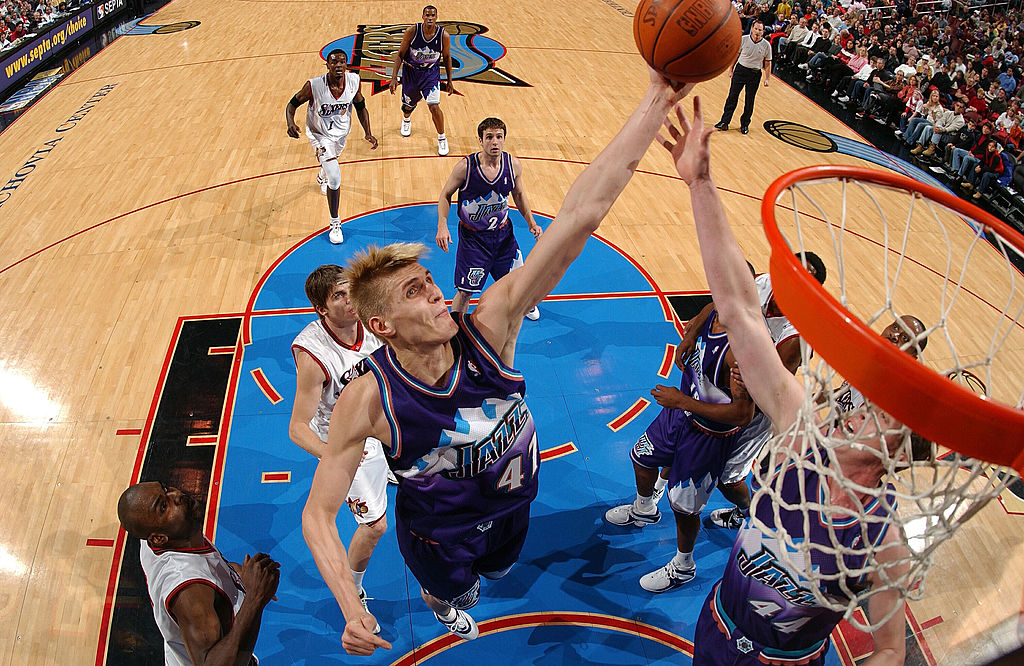Like the Wasatch Range itself, the jagged mountains that graced the front of the Utah Jazz’s uniforms from 1996-2004 are truly iconic. The logo marked major shifts for the franchise on a number of fronts. The design represented a change in geography, the first time the team’s aesthetic shifted from its Mardi Gras roots to its Salt Lake slopes. It would soon come to represent a shift in fortunes, as the Jazz broke through a postseason plateau to reach the NBA Finals in back-to-back seasons in the late ’90s. And, eventually, the mountains would mark the end of an era, when the Hall of Fame careers of John Stockton and Karl Malone came to a close in Utah.
Here are a few of our favorite mountain moments:
THE SHOT

May 29, 1997: The play call from the huddle was “Straight Line”. The clock showed 2.8 seconds left. Bryon Russell inbounded the ball. Bill Walton said, “Uh oh.” And John Stockton sent the Utah Jazz to the NBA Finals.
MAILMAN’S MVP

The Jazz won a franchise-best 64 games during the 1996-97 campaign, and they can thank Karl Malone for that. The Mailman averaged 27.4 points and 10 rebounds a game that season, edging Chicago’s Michael Jordan in MVP voting that season. Malone would win the award again in 1999.
FIRST FINALS

The fireworks and screaming fans inside the Delta Center on June 6, 1997, were so loud that Chicago’s Scottie Pippen had to cover his ears during warmups. The Jazz responded by giving their fans in a Utah a 104-93 victory in Game 3 of the series, the first NBA Finals game played in Salt Lake City.
KARL PASSES WILT

On Dec. 5, 2000, Malone dropped 31 points in a win over the Toronto Raptors. Along the way, the Mailman made history, moving past Wilt Chamberlain for second place in NBA scoring history. Malone’s 36,928 career points are, to this day, the second-most in league history, behind only Kareem Abdul-Jabbar.
ALL-STAR AK

The 2003-04 season was the mountain logo’s swan song, but Andrei Kirilenko made it count. The Russian forward averaged 16.5 points, 8.1 rebounds, 3.1 assists, 2.8 blocks and 1.9 steals per game that season, earning the first and only All-Star selection of his career.
